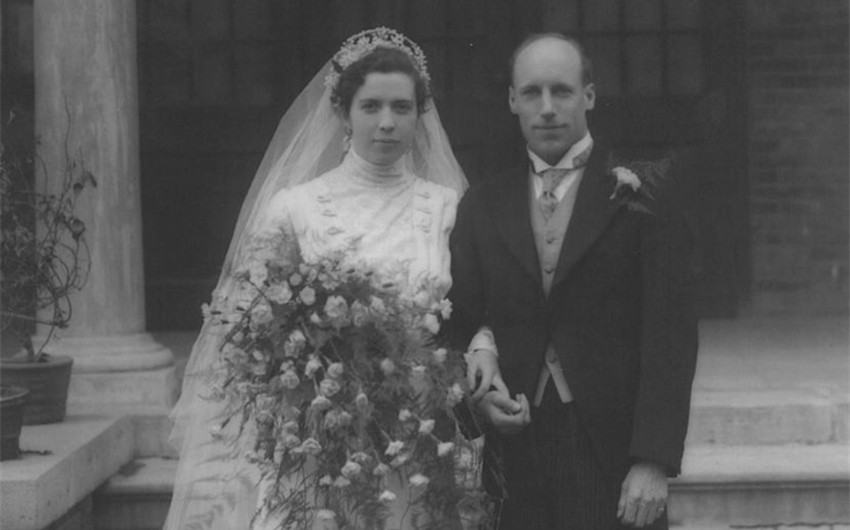Eric Liddell’s Wife: The Untold Story Behind the Olympic Hero’s Faith and Family
The story of the Eric Liddell’s wife is one of love, devotion, and unshakable faith that transcended distance, hardship, and even war. Eric Liddell, famously known as the “Flying Scotsman,” captured the world’s attention when he won Olympic gold in 1924 after refusing to run on a Sunday due to his religious convictions. His unwavering faith made him a global symbol of integrity and spiritual courage. Yet behind that extraordinary man stood an equally remarkable woman — Florence Mackenzie, his devoted wife, who shared his calling and endured years of separation and uncertainty. While history remembers Eric for his faith and sacrifice, Florence’s quiet strength and love are just as much a part of his legacy.
Who Was Eric Liddell?
Eric Henry Liddell was born in 1902 in Tianjin (then Tientsin), China, to Scottish missionary parents who worked with the London Missionary Society. Growing up in China, young Eric developed a love for sports and a deep sense of Christian faith that would later define his life. At the age of six, he was sent to boarding school in Scotland, where he excelled both academically and athletically.
By the time he attended the University of Edinburgh, Liddell had become one of Britain’s most promising athletes. Known for his unique running style—his head tilted back and arms flailing—he defied expectations on the track. When he refused to compete in the 100-meter race at the 1924 Paris Olympics because it was scheduled on a Sunday, many critics called him stubborn. But Eric held firm to his beliefs, opting instead to run the 400 meters, a race not considered his strength. Against all odds, he won the gold medal and set a new world record, becoming an international hero and later the subject of the Oscar-winning film Chariots of Fire.
Despite his fame, Eric never sought personal glory. Shortly after the Olympics, he shocked the sports world by leaving competitive athletics to return to China as a missionary. It was there, amid his teaching and ministry work, that he met the woman who would change his life forever — Florence Mackenzie.
Meeting His Future Wife – Florence Mackenzie
Florence Mackenzie was born in Tianjin, China, to Canadian missionary parents who also worked with the London Missionary Society. Like Eric, she grew up in a family dedicated to Christian service. Their shared upbringing in the missionary world and common purpose drew them together naturally.
Eric first met Florence after returning to China in the early 1930s to teach at the Anglo-Chinese College in Tianjin. He was 31 years old, and Florence was in her early twenties. She was teaching at a local school and frequently participated in church and mission activities. The two connected over their shared faith, their sense of duty to God, and their compassion for others.
Friends of the couple described their relationship as grounded and modest. They were both shy, humble people who preferred quiet service over fanfare. Eric, already well-known as an Olympic hero, had long since turned his focus away from athletics toward missionary work. Florence admired not his fame, but his unwavering faith and kindness.
Marriage and Family Life in China
Eric Liddell and Florence Mackenzie were married in March 1934 in Tianjin, surrounded by fellow missionaries and friends. Their wedding symbolized not only their love for each other but also their shared commitment to service in one of the most challenging environments of the time.
After marrying, the couple settled in Tianjin, where they worked together under the London Missionary Society. Eric taught science and coached sports at the Anglo-Chinese College, while Florence took on teaching and missionary responsibilities of her own. Despite the growing instability in China during the 1930s, they built a peaceful and fulfilling life dedicated to faith and education.
Their family soon grew. They had three daughters: Patricia (born 1935), Heather (born 1937), and Maureen (born 1941). For several years, the Liddells lived happily, teaching and ministering to Chinese students while raising their children. Eric was known for his kindness and patience, whether he was guiding students or helping local villagers. Florence supported him in every way, balancing her role as a mother and missionary with grace.
However, as the 1930s gave way to the 1940s, the world around them changed dramatically. Japan’s invasion of China in 1937 marked the beginning of years of turmoil that would test their faith and love to the limit.
Separation During World War II
By 1941, life in northern China had become increasingly dangerous. The Japanese occupation brought widespread violence and fear, especially for Westerners. Recognizing the risk, Eric and Florence made the painful decision that she and their children would evacuate to safety in Canada, while Eric remained in China to continue his missionary work.
It was one of the most difficult choices of their lives. Eric insisted that his duty was to stay and help those who couldn’t leave — the poor, the sick, and the displaced. He told Florence that while he couldn’t protect her and the children from afar, God would. With great sorrow but mutual understanding, Florence and the girls left for Toronto, Canada, while Eric stayed behind in Tianjin.
Separated by thousands of miles, they kept in touch through letters and telegrams. Their correspondence was filled with love, encouragement, and faith, though mail service was slow and unreliable due to the war. Florence dedicated herself to raising their daughters while Eric continued teaching and preaching under increasingly dangerous conditions.
Eric’s Internment and Final Years
In 1943, Eric was arrested by the Japanese authorities and sent to the Weihsien Civilian Internment Camp in Shandong Province, along with other foreign missionaries, teachers, and civilians. Conditions in the camp were harsh—overcrowded and undersupplied—but Eric became a beacon of hope for those around him.
Even in captivity, he lived out his faith. Fellow prisoners remembered him as selfless and kind, always encouraging others and organizing activities to keep morale high. He taught children, shared his rations with those who had less, and provided spiritual comfort to anyone who needed it.
Meanwhile, in Canada, Florence waited anxiously for news. She was raising three young daughters alone, uncertain whether her husband was safe. The last letter she received from him expressed love and reassurance, reminding her to stay strong in faith.
Tragically, in February 1945, just months before the war ended, Eric Liddell died in the internment camp at the age of 43. The cause was a brain tumor, though many believe the immense stress and poor conditions hastened his death. Witnesses reported that his final words were, “It’s complete peace.”
Florence received the devastating news later that year. She was heartbroken but comforted by the knowledge that Eric had remained faithful to the end, serving others until his last breath.
Life After Eric’s Death – Florence’s Later Years
After Eric’s death, Florence Mackenzie Liddell continued to live in Canada, dedicating herself to raising their daughters. Friends described her as dignified and quietly resilient. She rarely spoke publicly about her husband’s death, preferring to focus on nurturing her children and preserving his legacy through faith and example.
As her daughters grew, Florence made sure they understood their father’s life, not through fame or the story of an Olympic hero, but through the lessons of humility, faith, and service he embodied. Each of their children carried forward the same principles that had defined their parents’ lives.
Florence never remarried. She lived the rest of her life quietly, surrounded by family and faith. While Eric Liddell’s story was immortalized in the 1981 film Chariots of Fire, Florence remained a largely private figure, her role in his life recognized mainly in biographies and letters. Yet without her, much of Eric’s story would have been incomplete.
The Legacy of Their Love
The story of Eric and Florence Liddell is not just about one man’s heroism, but about a partnership rooted in deep faith. Their marriage represents the strength that comes from shared purpose — a love sustained not by circumstance but by conviction.
Florence’s courage to let her husband stay in a war zone, knowing she might never see him again, reveals an extraordinary faith of her own. She trusted in God’s will and in the man she loved. Their separation and the tragedy that followed are heartbreaking, but their bond continues to inspire generations of believers, athletes, and families alike.
Today, both Eric and Florence Liddell are remembered as examples of steadfast devotion — to God, to family, and to humanity. Their descendants and biographers continue to honor their story, ensuring that Florence’s quiet strength and Eric’s faith-driven life are never forgotten.
Featured Image Source: commons.wikimedia.org







